Education
TRIO helps low-income students get to and through college. Trump wants to end it

MOREHEAD, Ky. — The summer after ninth grade, Zoey Griffith found herself in an unfamiliar setting: a dorm on the Morehead State University campus.
There, she’d spend the months before her sophomore year taking classes in core subjects including math and biology and electives like oil painting.
For Griffith, it was an opportunity, but a scary one. “It was a big deal for me to live on campus at the age of 14,” she said. Morehead State is about an hour from her hometown of Maysville. “I was nervous, and I remember that I cried the first time that my dad left me on move-in day.”
Her mother became a parent as a teenager and urged her daughter to avoid the same experience. Griffith’s father works as a mechanic, and he frowns upon the idea of higher education, she said.
And so college back then seemed a distant and unlikely idea.
But Griffith’s stepsister had introduced her to a federal program called Upward Bound. It places high school students in college dorms during the summer, where they can take classes and participate in workshops on preparing for the SAT and financial literacy. During the school year, students get tutoring and work on what are called individual success plans.
It’s part of a group of federal programs, known as TRIO, aimed at helping low-income and first-generation students earn a college degree, often becoming the first in their families to do so.
So, thanks to that advice from her stepsister, Kirsty Beckett, who’s now 27 and pursuing a doctorate in psychology, Griffith signed up and found herself in that summer program at Morehead State. Now, Griffith is enrolled at Maysville Community and Technical College, with plans to become an ultrasound technician.
Related: Interested in more news about colleges and universities? Subscribe to our free biweekly higher education newsletter.
TRIO, once a group of three programs — giving it a name that stuck — is now the umbrella over eight, some dating back to 1965. Together, they serve roughly 870,000 students nationwide a year.
It has worked with millions of students and has bipartisan support in Congress. Some in this part of the Appalachian region of Kentucky, and across the country, worry about students who won’t get the same assistance if President Donald Trump ends federal spending on the program.

A White House budget proposal would eliminate spending on TRIO. The document says “access to college is not the obstacle it was for students of limited means” and puts the onus on colleges to recruit and support students.
Advocates note that the programs, which cost roughly $1.2 billion each year, have a proven track record. Students in Upward Bound, for example, are more than twice as likely to earn a bachelor’s degree by age 24 than other students from some of the nation’s poorest households, according to the Council for Opportunity in Education. COE is a nonprofit that represents TRIO programs nationwide and advocates for expanded opportunities for first-generation, low-income students.
For the high school class of 2022, 74 percent of Upward Bound students enrolled immediately in college — compared with only 56 percent of high school graduates in the bottom income quartile.
Upward Bound is for high school students, like Griffith. Another TRIO program, Talent Search, helps middle and high school students, without the residential component. One called Student Support Services (SSS) provides tutoring, advising and other assistance to at-risk college students. Another program prepares students for graduate school and doctoral degrees, and yet another trains TRIO staff.
A 2019 study found that after four years of college, students in SSS were 48 percent more likely to complete an associate’s degree or certificate, or transfer to a four-year institution, than a comparable group of students with similar backgrounds and similar levels of high school achievement who were not in the program.
“TRIO has been around for 60 years,” said Kimberly Jones, the president of COE. “We’ve produced millions of college graduates. We know it works.”
Related: Tracking Trump: His actions to dismantle the Education Department, and more
Yet Education Secretary Linda McMahon and the White House refer to the programs as a “relic of the past.”
Jones countered that census data shows that “students from the poorest families still earn college degrees at rates far below that of students from the highest-income families,” demonstrating continued need for TRIO.
McMahon is challenging that and pushing for further study of those TRIO success rates. In 2020, the U.S. Government Accountability Office found that even though the Education Department collects data on TRIO participants, “the agency has gaps in its evidence on program effectiveness.” The GAO criticized the Education Department for having “outdated” studies on some TRIO programs, and no studies at all for others. Since then, the department has expanded its evaluations of TRIO.

During a Senate subcommittee hearing in June, McMahon acknowledged “there is some effectiveness of the programs, in many circumstances.”
Still, she said there is not enough research to justify TRIO’s total cost. “That’s a real drawback in these programs,” McMahon said.
Now, she is asking lawmakers to eliminate TRIO spending after this year and has already canceled some previously approved TRIO grants.
Related: A big reason rural students never go to college: No one recruits them
“What are we supposed to do, especially here in eastern Kentucky?” asked David Green, a former Upward Bound participant who is now marketing director for a pair of Kentucky hospitals.
Green lives in a region that has some of the nation’s highest rates of unemployment, cancer and opioid addiction. “I mean, these people have big hearts, they want to grow,” he added. Cutting these programs amounts to “stifling us even more than we’re already stifled.”
Green described his experience with TRIO at Morehead State in the mid-1980s as “one of the best things that ever happened to me.”
He grew up in a home without running water in Maysville, a city of about 8,000 people. It was on a TRIO trip to Washington, D.C., he recalled, that he stayed in a hotel for the first time. Green remembers bringing two suitcases so he could pack a pillow, sheets and comforter — unaware the hotel room would have its own.
He met students from other towns and with different backgrounds. Some became lifelong friends. Green learned table manners, the kind of thing often required in business settings. After college, he was so grateful for TRIO that he became one of its tutors, working with the next generation of students.
TRIO’s all-encompassing nature makes it unique among college access programs, said Tom Stritikus, the president of Occidental College, a private liberal arts college in Los Angeles. He was previously president of Fort Lewis College, a public liberal arts school in Colorado with a large Native American student population. At both institutions, Stritikus said, he witnessed the effectiveness of TRIO’s methods, which he described as a “soup to nuts” menu of services for at-risk students trying to be the first in their families to earn degrees.
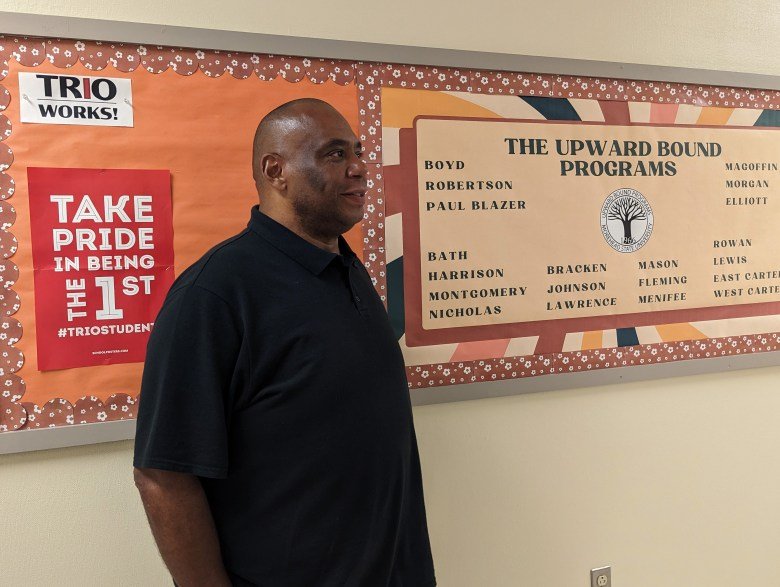
Jones, of the Council for Opportunity in Education, said she is cautiously optimistic that Congress will continue funding TRIO, despite the Trump administration’s request. The programs serve students in all 50 states. According to the COE, about 34 percent are white, 32 percent are Black, 23 percent are Hispanic, 5 percent are Asian, and 3 percent are Native American. TRIO’s guidelines require that a majority of participants come from families making less than 150 percent of the federal poverty level. For a family of four living in the contiguous United States, that’s a max of $48,225 a year.
Related: How Trump is changing higher education: The view from 4 campuses
In May, Rep. Mike Simpson, an Idaho Republican, called TRIO “one of the most effective programs in the federal government,” which, he said, is supported by “many, many members of Congress.”
In June, Sen. Shelley Moore Capito, a Republican from West Virginia and a former TRIO employee, spoke about its importance to her state. TRIO helps “a student that really needs the extra push, the camaraderie, the community,” she said. “I’ve gone to their graduations, and been their speaker, and it’s really quite delightful to see how far they’ve come, in a short period of time.”
TRIO survived, with its funding intact, when the Senate appropriations committee approved its budget last month. The House is expected to take up its version of the annual appropriations bill for education in early September. Both chambers ultimately have to agree on federal spending, a process that could drag on until December, leaving TRIO’s fate in Congress uncertain.
While lawmakers debate its future, the Trump administration could also delay or halt TRIO funding on its own. Earlier this year, the administration took the unprecedented step of unilaterally canceling about 20 previously approved new and continuing TRIO grants.
At Morehead State, leaders say the university — and the region it serves — need the boost it receives from TRIO: While roughly 38 percent of American adults have earned at least a bachelor’s degree, in Kentucky, that figure is only 16 percent. And, locally, it’s 7 percent, according to Summer Fawn Bryant, the director of TRIO’s Talent Search programs at the university.
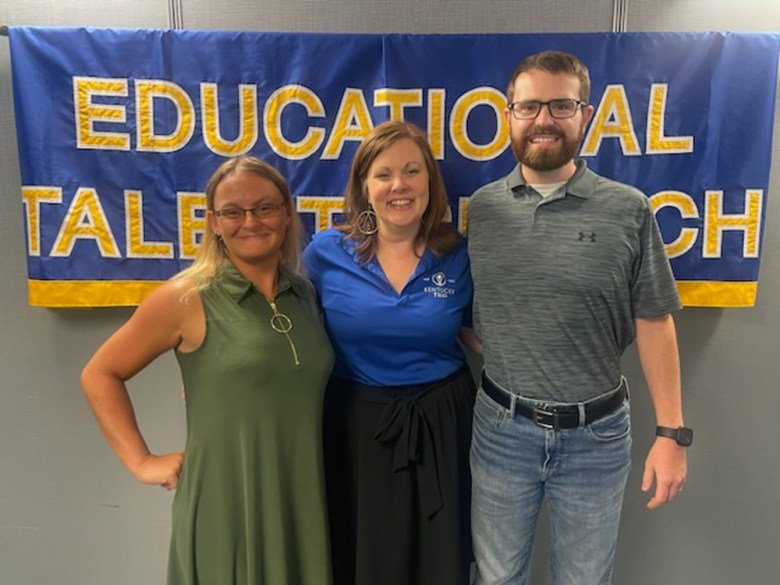
TRIO works to counter the stigma of attending college that still exists in parts of eastern Kentucky, Bryant said. A student from a humble background who is considering college, she said, might be scolded with the phrase: Don’t get above your raisin’.
“A parent may say it,” Bryant said. “A teacher may say it.”
She added that she’s seen time and again how these programs can turn around the lives of young students facing adversity.
Students like Beth Cockrell, an Upward Bound alum from Pineville, Ky., who said her mom struggled with parenting. “Upward Bound stepped in as that kind of co-parent and helped me decide what my major was going to be.”
Cockrell went on to earn three degrees at Morehead State and has worked as a teacher for the past 19 years. She now works with students at her alma mater and teaches third grade at Conkwright Elementary School, about an hour away.
In a few years, 17-year-old Upward Bound student Isaac Bocook plans to join the teaching ranks too — as a middle school social studies teacher. Bocook said he was indecisive about what to study after high school, but he finally figured it out after attending a career fair at Morehead State’s historic Button Auditorium.
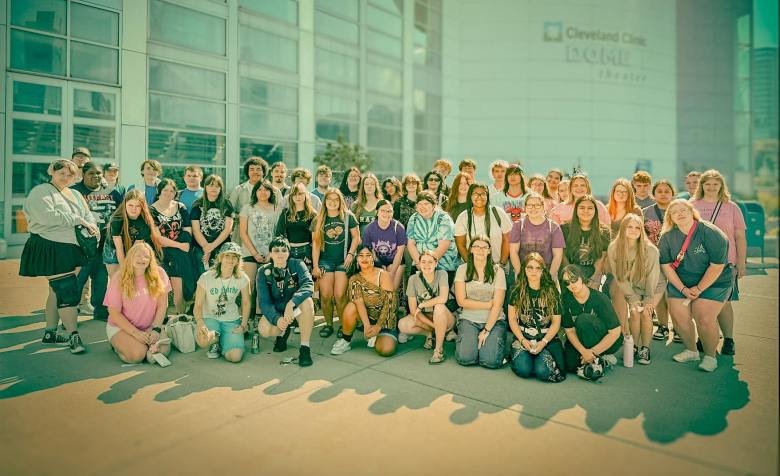
Bocook lives in Lewis County, with just under 13,000 residents and a single public high school. At Morehead State’s TRIO program, Bocook met teenagers from across the entire region, which he said improved his social skills. TRIO also helped him with all kinds of paperwork on the pathway to adulthood. Filling out financial aid forms. Writing scholarship applications. Crafting a resume.
“I’m just truly grateful to have TRIO, as sort of like a hand to hold,” Bocook said.
His need for guidance is similar to what students at Morgan County High School in West Liberty, Kentucky, experience, said Lori Keeton, the school guidance counselor. The challenge facing these first-generation students, she said, is that “you just simply don’t know what you don’t know.”
As the sole counselor for 550 students, Keeton doesn’t have time to help each student navigate the complex college-application process and said she worries that some of her students will apply to fewer colleges, or no colleges at all, if TRIO disappears.
TRIO’s Talent Search program serves about 100 students at her high school, and roughly another dozen are part of Upward Bound. Each program has a dedicated counselor who visits regularly to guide and assist students.
Related: From gangs to college
Sherry Adkins, an eastern Kentucky native who attended TRIO more than 50 years ago and went on to become a registered nurse, said efforts to cut TRIO spending ignore the long-term benefits. “Do you want all of these people that are disadvantaged to continue like that? Where they’re taking money from society? Or do you want to help prepare us to become successful people who pay lots of taxes?”
As Washington considers TRIO’s future, program directors like Bryant, at Morehead State, press forward. She has preserved a text message a former student sent her two years ago to remind her of what’s at stake.
After finishing college, the student was attending a conference on child abuse when a presenter showed a slide that included the quote: “Every child who winds up doing well has had at least one stable and committed relationship with a supportive adult.”
“Forever thankful,” the student texted Bryant, “that you were that supportive adult for me.”
Contact editor Nirvi Shah at 212-678-3445, securely on Signal at NirviShah.14 or via email at shah@hechingerreport.org.
This story about TRIO was produced by The Hechinger Report, a nonprofit, independent news organization focused on inequality and innovation in education. Sign up for the Hechinger newsletter.
Education
More school-starters missing key skills like toilet training, teachers say

Kate McGoughEducation reporter, BBC News
 Getty Images
Getty ImagesSchools are “picking up the pieces” as more children start reception without key skills such as speaking in full sentences or using the toilet independently, teaching unions have told the BBC.
A third of teachers have at least five children in their school’s reception class who need help with going to the toilet, a survey of more than 1,000 primary school teachers in England suggests.
Nine in 10 who responded to the Teacher Tapp survey had seen a decrease in speech and language abilities among new starters over the past two years.
The government previously announced a target for 75% of children to be at a good level of development on leaving reception by 2028.
At St Mary’s Church of England Primary School in Stoke, speech and language therapist Liz Parkes is helping reception pupil Gracie sound out words that rhyme.
Liz comes to the school once a week to do one-to-one interventions like this, and to offer training and support to teachers on how to spot issues.
Around a quarter of pupils at St Mary’s need some extra support with speech and language when they join reception, but with Liz’s help that number is down to just a handful of pupils by Year 2.
Liz says social isolation is partly the reason for the decrease in communication skills.
“Children are increasingly spending a lot of time looking at a screen and not necessarily engaged in more meaningful interactions or developing the kind of listening skills you need when you hit nursery and reception.
“We’re seeing children in reception who haven’t experienced having conversations on a regular basis or aren’t having a range of experiences where they’re exposed to language.”
 BBC/Kate McGough
BBC/Kate McGoughTeacher Tapp, a survey tool, asked primary school teachers in England about school readiness a week into term. In results seen exclusively by BBC News, they found:
- 85% of 1,132 respondents said they had at least one reception pupil who needed help going to the toilet
- 33% have at least five children needing help, while 8% had at least 10
- 92% reported a decrease in speech and language abilities among reception starters over the past two years.
A Department for Education spokesperson said that the government was working to ensure that a record share of children are “school-ready” at the age of five, “turning the tide on inherited challenges of lack of access to high-quality early education, and helping teachers focus on teaching so every child in the class can achieve and thrive”.
The spokesperson added that the government had already increased access to early years care for hundreds of thousands of families and was investing £1.5bn to “rebuild early years services”.
 BBC/Kate McGough
BBC/Kate McGoughCatherine Miah, deputy head at St Mary’s Church of England Primary School in Stoke, encouraged schools to budget for a speech and language therapist, who could have an “incredible” impact on children.
“We’ve had to make sacrifices elsewhere, but if children aren’t ready to learn you could sit them in front of the best phonics lessons in the world, they’re not going to take it onboard if they’ve not got those learning behaviours.”
The school says a third of its pupils need help with toilet training when they join nursery, but the school works with parents to ensure they are toilet-trained by the time they reach reception.
“We’re a team. It’s not a case of saying to parents ‘This is your job. Why haven’t you done it?’ We need to work together.”
The government has set a target that 75% of children leaving reception at five years old will have a “good level of development” by 2028. Last year 68% of children were at that level, so an extra 45,000 children a year are needed to reach that goal.
To achieve a “good” level of development, a child is assessed by teachers at the end of their reception year on tasks including dressing, going to the toilet, and paying attention in class.
Pepe Di’Iasio, of the Association of School and College Leaders, said reception teachers were “brilliant” at supporting young children but local services have been badly eroded over the past decade.
“It has left schools picking up the pieces,” he said. “Many children are starting school already several months behind their peers.”
Parenting charity Kindred Squared found that teachers are spending 2.5 hours a day helping children who haven’t hit developmental milestones instead of teaching.
They have written a set of guidelines for parents to check whether their child has the skills they need to begin school.
The Department for Education was approached for comment.
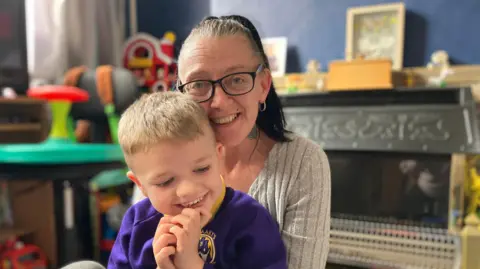 BBC/Kate McGough
BBC/Kate McGoughDiane’s son has just started Year 1 at St Mary’s in Stoke this year. She says without the school’s support he would have been much further behind in his development.
“Within two weeks he was out of nappies,” said Diane. “They would help him on the toilet here and I’d do it at home, we’d work together.”
Teachers say her boy is thriving, but Diane says the school has been instrumental in supporting his special educational needs and improving his speech and language.
“He does a lot for himself, whereas before he was always dependent on me. School have helped me to help him become more independent and more confident,” she said.
Additional reporting by Emily Doughty
Education
Kentucky schools, healthcare embrace AI despite mixed reactions
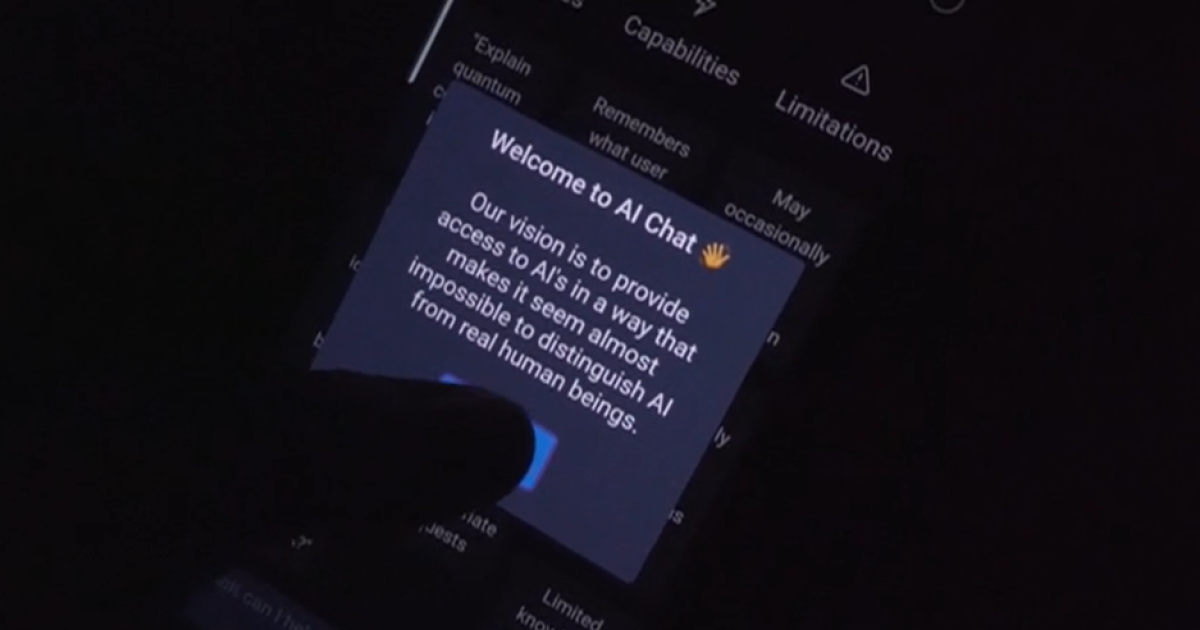
(LEX 18) — Artificial intelligence is reshaping how local organizations operate, from classrooms in Irvine to healthcare facilities in Lexington, as professionals navigate both the opportunities and challenges of this rapidly evolving technology.
Lisa Blue, who researches AI’s impact on workforce development, delivers six to eight speaking engagements per month discussing AI policy and implementation. She encounters varied student experiences with the technology.
“AI is going to change how we work before it changes who works,” Blue said.
Blue works to shift perceptions about AI in education, particularly addressing misconceptions from K-12 settings.
“We do have students coming in from K through 12, who have been told AI is straight up cheating and it’s bad don’t use it and I’m really trying to change that narrative,” Blue said.
At Estill County Area Technology Center in Irvine, students continue integrating AI into their studies. Allyson Banks, who works at the school, describes the technology’s dual nature.
“It is fantastic and terrifying at the same time,” Banks said.
The school’s programs align well with AI applications, according to Banks.
“We have robotics, manufacturing, a lot of different things that pair really well with AI,” Banks said.
For computer science teacher Zach Bennett, AI offers significant efficiency gains.
“Using AI, you can create things in half the time that it would normally cost,” Bennett said.
Healthcare transformation on the horizon
In Lexington’s healthcare sector, CEO, Dr. Stephen Behnke at Lexington Clinic sees AI as a transformative force, though still in early stages.
“I’d say we’re in the early innings of this,” Behnke said.
Behnke anticipates fundamental changes across the healthcare industry.
“I think that AI is going to fundamentally transform healthcare. I think that the power of the tools today is pretty early,” Behnke said.
Looking ahead operationally, Behnke predicts significant changes within the next decade.
“There’s almost no way that by 2030 2035 healthcare doesn’t look profoundly different,” Behnke said.
A market size and forecast report from Grand View Research supports Behnke’s projections, showing substantial growth in healthcare AI spending. The report projects that $187 billion will be spent on healthcare AI alone by 2030, representing a significant jump from 2024 market size.
The research highlights AI’s expanding role across multiple sectors, from education and manufacturing to healthcare, as organizations adapt to integrate these tools into their operations while addressing concerns about implementation and workforce impact.
As for jobs of the future and how they connect with AI?
Dr. Blue at EKU and Banks at Estill County ATC addressed that question:
“Any kind of job where it’s hands-on so we’re talking like healthcare, advanced manufacturing, logistics, construction, agriculture, they’re all adding AI enhanced jobs right now. So, they’re not really being threatened by it, they’re being enhanced by AI capabilities,” Blue said.
“I don’t think it’s necessarily gonna replace as many humans as it’s going to make us better at our jobs, or at least faster at our jobs,” Banks added.
Education
Daystar University and MindHYVE.ai Launch AI-Powered Higher Education Transformation in Kenya
NAIROBI, Kenya and NEWPORT BEACH, Calif, Sept. 11, 2025 /PRNewswire/ — Daystar University, one of Kenya’s premier private Christian liberal arts institutions, and MindHYVE.ai, Inc., a global innovator in artificial intelligence, have entered into a landmark partnership to embed ArthurAI™, MindHYVE’s agentic AI learning platform, across Daystar’s academic ecosystem.
This partnership positions Daystar as one of the first universities in East Africa to implement a comprehensive AI-powered learning environment at scale — directly addressing the needs of Kenya’s over 500,000 higher education students, many of whom face challenges of access, personalization, and outcomes.
ArthurAI by the Numbers: Transforming Learning and Teaching
ArthurAI has already demonstrated significant measurable impact in academic environments:
- 80% reduction in curriculum preparation time – allowing faculty to shift focus from administrative tasks to mentorship, research, and innovation.
- Adaptive learning pathways – dynamically tailoring coursework to each student’s cognitive profile, learning style, and pace.
- Predictive analytics for student success – enabling early identification of at-risk learners and targeted interventions that raise completion and retention rates.
- Multilingual delivery in 10+ languages – critical in Kenya’s diverse linguistic landscape, ensuring inclusivity and accessibility.
- Mobile-first and offline capability – extending Daystar’s reach beyond classrooms, supporting equitable access even in bandwidth-limited environments.
“ArthurAI will not only enhance our classrooms — it will redefine them,” said Professor Martha Kiarie, Dean of the School of Science, Engineering and Health at Daystar University. “By leveraging adaptive intelligence, we can ensure every student is supported according to their unique learning needs. This is how we prepare our graduates to thrive in an AI-enabled global economy.”
Bill Faruki, CEO & Founder of MindHYVE.ai, added:
“ArthurAI isn’t a theory — it’s a proven system already delivering measurable gains. Partnering with Daystar allows us to show how Africa’s universities can leapfrog legacy systems and lead the world in responsible, scalable AI education.”
The rollout begins this semester across selected departments and will progressively expand to reach Daystar’s entire academic community. Quarterly reviews will measure student engagement, faculty adoption, and institutional outcomes — ensuring continuous improvement and maximum impact.
About Daystar University
Daystar University is a private Christian liberal arts university with campuses in Nairobi and Athi River. Chartered in 1994, Daystar is known for shaping servant-leaders equipped to transform society through faith-driven excellence.
About MindHYVE.ai
MindHYVE.ai™ is redefining the boundaries of intelligence by engineering autonomous systems and deploying domain-specific AGI agents across real-world sectors. Powered by the Ava-Fusion™ large reasoning model and architected for agent coordination, swarm intelligence, and adaptive autonomy, MindHYVE’s technology stack is revolutionizing law, medicine, finance, education, and governance.
With operations in North America, Asia, and now soon in Africa, MindHYVE.ai™ is on a mission to democratize access to transformative intelligence and architect the infrastructure for post-scarcity economies. Backed by HYVE Labs, the company continues to shape the future of agentic systems on a global scale.
Website: www.mindhyve.ai | Email: [email protected] | Contact: +1 (949) 200-8668
Media Contacts
Marc Ortiz
Email: [email protected]
Photo – https://mma.prnewswire.com/media/2771408/MindHYVE_ai_x_Daystar.jpg
Logo – https://mma.prnewswire.com/media/2730797/MindHYVE_ai_Logo_MindHYVE_ai_SQ_Logo.jpg

-

 Business2 weeks ago
Business2 weeks agoThe Guardian view on Trump and the Fed: independence is no substitute for accountability | Editorial
-
Tools & Platforms1 month ago
Building Trust in Military AI Starts with Opening the Black Box – War on the Rocks
-

 Ethics & Policy2 months ago
Ethics & Policy2 months agoSDAIA Supports Saudi Arabia’s Leadership in Shaping Global AI Ethics, Policy, and Research – وكالة الأنباء السعودية
-

 Events & Conferences4 months ago
Events & Conferences4 months agoJourney to 1000 models: Scaling Instagram’s recommendation system
-

 Jobs & Careers2 months ago
Jobs & Careers2 months agoMumbai-based Perplexity Alternative Has 60k+ Users Without Funding
-

 Podcasts & Talks2 months ago
Podcasts & Talks2 months agoHappy 4th of July! 🎆 Made with Veo 3 in Gemini
-

 Education2 months ago
Education2 months agoVEX Robotics launches AI-powered classroom robotics system
-

 Education2 months ago
Education2 months agoMacron says UK and France have duty to tackle illegal migration ‘with humanity, solidarity and firmness’ – UK politics live | Politics
-

 Funding & Business2 months ago
Funding & Business2 months agoKayak and Expedia race to build AI travel agents that turn social posts into itineraries
-

 Podcasts & Talks2 months ago
Podcasts & Talks2 months agoOpenAI 🤝 @teamganassi






















